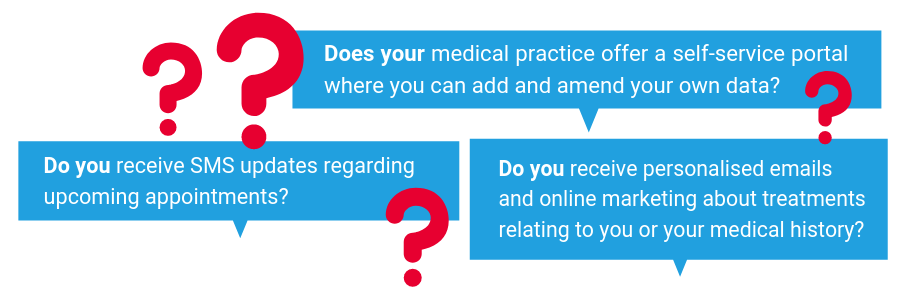CRM in the healthcare Sector
Think CRM methodology is only applicable to large companies and sales teams? Think again.
CRM favoured by industries everywhere
It’s no secret that CRM systems can radically transform the way businesses operate, but they don’t just revolve around sales and marketing functions – nor do they have to be used by companies with a strong B2C focus.
From banks and building societies to utility firms and absolutely everything in-between, CRM has a use in every sector.
The growing prevalence of CRM systems in healthcare
CRM refers to Customer Relationship Management, an effective approach used by businesses to nurture long-lasting and consistent relationships with their clients. Often this means using a Cloud-based CRM system.
CRM systems are also used by medical professionals who want an extensive and accurate record of their patients, as data is pulled in from various sources and merged together to create one Cloud based 360-view of a customer.

The NHS looks to new technology
Pressure on the NHS is greater than ever before and time and resources are being spread far too thin, causing the healthcare sector to be particularly observant of new tech developments to help them work in a more unified way.
Innovative technology is helping make the healthcare sector more advanced by the second as the demand for a quick, accurate and well-organised service grows. This is what patients want too – Salesforce reported that 70% of patients would rather receive flexible virtual care instead of going to a practice.
Improving the standard of IT in the NHS
Do you remember the chaos caused by the WannaCry attack in 2017?
Hackers exploited the outdated version of Windows installed across the NHS, it comes as no surprise that they’re looking to bolster every aspect of their digital presence and implement more modern and secure practices.
How are CRM systems used in healthcare?
Signs that your medical practice has a CRM system
It’s probable that your GP practice uses a CRM system, where data belonging to you and many other patients is safely stored, but how would you ever know?

If you answered yes to the above, then you’re a part of amass of data stored in a CRM system used by the surgery.
What is the Salesforce Health Cloud?
The Health Cloud was launched by Salesforce in 2015, with its main purpose being to combine EMRs (electronic medical records) with a one-on-one patient management system. Recently, the Health Cloud underwent adaptation to be able to incorporate data from insurance companies, creating a full 360 degree view of patients to better understand the help they require. Masses of data from medical devices, such as pacemakers and infusion pumps, will be connected to the Health Cloud so that professionals can accurately monitor the condition of their patients.
In 2016, the full value of CRM in the healthcare industry was reported to total around £5 billion, with predictions that this figure will soar to £13 billion by 2025.
Contact Sandyx for more information
If you have any questions whatsoever about your existing CRM system or Salesforce org, please do not hesitate to contact us today.